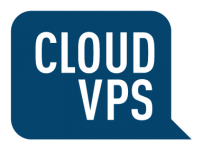Customer Relationship Management (CRM) Software
What is CRM ?
Customer Relationship Management (CRM) is a strategy businesses use to manage and analyze customer interactions and data throughout the customer lifecycle. The goal is to improve customer service relationships, assist in customer retention, and drive sales growth.

CRM Software: A Powerful Tool for Businesses
CRM software acts as a central hub for managing all customer-related information. It provides tools to manage:
- Contact Management: Store and organize customer contact details, communication history, and other relevant data.
- Sales Pipeline Management: Track leads, opportunities, and deals, allowing sales teams to manage their pipelines effectively.
- Marketing Automation: Automate marketing tasks such as email campaigns, lead nurturing, and social media engagement.
- Customer Support: Manage customer queries, complaints, and support tickets through various channels.
- Analytics and Reporting: Gain insights into customer behavior, sales performance, and marketing campaign effectiveness.
Benefits of Using CRM Software
Implementing CRM software offers numerous benefits, including:
- Improved Customer Relationships: Provides a holistic view of customer interactions, enabling personalized experiences.
- Increased Sales and Revenue: Helps identify and convert leads more effectively, improving sales closure rates.
- Enhanced Productivity and Efficiency: Automates tasks, streamlines processes, and improves team collaboration.
- Data-Driven Insights: Provides valuable data for informed decision-making in sales, marketing, and customer service.
- Improved Customer Retention: Helps identify and address customer issues proactively, fostering loyalty.
Choosing the Right CRM Software
Selecting the appropriate CRM solution depends on factors like business size, industry, budget, and specific needs. Cloud-based CRM solutions offer flexibility and scalability, while on-premise options provide greater control over data.
Key CRM Features to Consider:
- Contact management and segmentation
- Sales pipeline management
- Marketing automation capabilities
- Customer support features (ticketing system, knowledge base)
- Reporting and analytics dashboards
- Integrations with other business tools (email, calendar, marketing platforms)
- Mobile accessibility
By leveraging the power of CRM software, businesses can streamline operations, strengthen customer relationships, and drive sustainable growth.
















